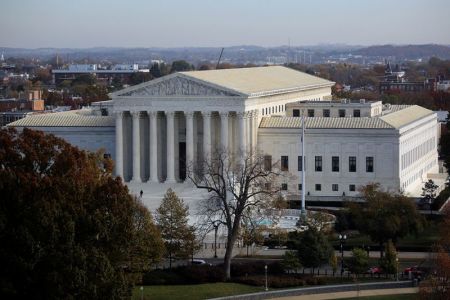Supreme Court rejects SC's appeal to stop giving Medicaid funds to Planned Parenthood abortion clinics

The U.S. Supreme Court on Tuesday rejected an appeal from South Carolina lawmakers to end taxpayer funding of Planned Parenthood abortion clinics through Medicaid reimbursements.
The case of Baker, Dir., SC Dept. of Health v. Planned Parenthood was one of many appeals denied a writ of certiorari by the high court earlier this week. Eighty-six state lawmakers had signed a brief asking the court to take up the case.
The battle between South Carolina’s Department of Health and Human Services and Planned Parenthood South Atlantic dates back to 2018 when Gov. Henry McMaster issued an executive order directing the state’s Department of Health and Human Services to deem abortion clinics “enrolled in the Medicaid program as unqualified to provide family planning services.”
McMaster’s 2018 executive order expanded on a 2017 executive order, where he directed the DHHS to “pursue all available methods and to take all necessary actions to exclude abortion providers from receiving taxpayer funds for any purpose.”
A lawsuit against the state, filed by Planned Parenthood South Atlantic and one of its patients, soon followed McMaster’s 2018 executive order. “The executive order has forced PPSAT (Planned Parenthood South Atlantic) to stop providing basic preventative health services to the Medicaid patients who rely on us each year for family planning and other preventative health care,” Planned Parenthood South Atlantic CEO Jenny Black said in a statement arguing against the defunding of two abortion clinics.
The 4th Circuit Court of Appeals sided with Planned Parenthood, ruling that the state could not stop Medicaid recipients from using their coverage to seek services at Planned Parenthood abortion clinics.
In its decision, the appellate court argued that the free-choice-of-provider provision in the Medicaid Act requires states to “furnish Medicaid recipients the right to choose among providers ‘qualified to perform the service or services required’” and therefore “bars states from excluding providers for reasons unrelated to professional competency.”
South Carolina officials had hoped that the Supreme Court would reverse the 4th Circuit’s injunction.
Helene Krasnoff, vice president of public policy litigation at Planned Parenthood Federation of America, praised the Supreme Court’s decision, claiming that it reinforces the fact that “blocking people with low incomes from choosing the provider they know and trust is unlawful.” Brian Symmes, a McMaster spokesman, vowed to “continue to appeal the decision on the merits to the appellate court and beyond, if necessary.”
Because the Supreme Court refused to hear South Carolina’s appeal, the case will likely go back to the 4th Circuit. An injunction from federal judge Mary Lewis preventing McMaster from withholding Medicaid money from the state’s Planned Parenthood clinics remains.
The Supreme Court’s refusal to hear the appeal comes less than two weeks after Planned Parenthood and the American Medical Association submitted a petition to the court asking it to overturn the Trump administration’s “Protect Life” rule that prevents abortion providers from receiving Title X funding. The Title X program was established 50 years ago to provide low-income or uninsured Americans with “a broad range of family planning and related preventative health services” that does not include abortion.
Two separate Courts of Appeals have reached differing conclusions regarding the constitutionality of the Protect Life rule. The Fourth Circuit Court of Appeals has found the rule invalid while the Ninth Circuit Court of Appeals has allowed the Trump administration to continue enforcing it.
McMaster’s executive order is one of many efforts at the state and federal levels to advance the pro-life cause. Several states, including Tennessee, Mississippi, Georgia, Missouri, Iowa, Arkansas and North Dakota have enacted heartbeat bills, which ban abortion after a fetal heartbeat can be detected, usually around six weeks gestation. In all of the aforementioned states, court rulings have prevented abortion bans from going into effect.
Meanwhile, lawmakers in New Jersey have introduced legislation that would codify the 1973 Supreme Court decision Roe v. Wade into law, guaranteeing that women in the state have the right to access abortion should the Supreme Court overturn the landmark Supreme Court case. Democrat presidential nominee Joe Biden has vowed to codify Roe into law at the federal level should he win the 2020 presidential election.





















